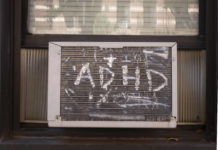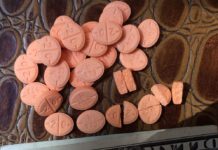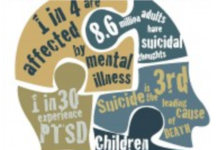New Study Challenges “Late-Onset ADHD”
Researchers found that 95% of adolescents and adults who screened positive for late-onset ADHD did not merit the actual diagnosis.
“Sluggish Cognitive Tempo” is the New ADHD
"Some powerful figures in mental health," according to today's New York Times, "are claiming to have identified a new disorder that could vastly expand the...
Pets Play Central Role in Management of Mental Health Problems
Individuals with long-term mental health conditions identify pets as valuable supports in their daily lives.
Outdoor Education Tied to Psychological and Academic Benefits
How the satisfaction of basic psychological needs (BPN) in outdoor education environments can peak student interest and boost intrinsic motivation.
The Inherent Unreliability of the ADHD Label
I imagine that everybody on this side of the issue knows by now that the eminent psychiatrist Jeffrey Lieberman, MD, Chief Psychiatrist at Columbia, and past President of the APA, called Robert Whitaker "a menace to society." The grounds for Dr. Lieberman's vituperation were that Robert had dared to challenge some of psychiatry's most sacred tenets! But in all the furor, it was largely ignored that in the same interview Dr. Lieberman had said something else that warrants additional discussion.
You, Your Kids, or the Doctor… Who’s Running the Show?
Let’s face it, as our kids slowly developing brains wrestle with behavioral and maturity issues while also trying to juggle expectations related to academic and social challenges, some of the behaviors they display can be quite concerning. Understandably, after trying what seems like everything in the books plus the kitchen, bathroom and laundry room sinks, caring and often exhausted parents are actively looking for help, resources and answers. But guess what? Without any need for pharmaceutical intervention or “drug therapy,” for centuries parents have been quite capable of helping challenged children overcome semi-annoying and concerning behaviors that some “experts” want to label today as symptoms of a mental disorder. Behaviors that a billion kids worldwide display every day.
Self-Compassion Course Supports College Students to Support Themselves
New research on a brief self-compassion focused course aimed at the college students.
ADHD Medication Risks Outweigh Benefits in Most Cases
A systematic review of studies of stimulant medications for ADHD has concluded that the drugs should be used as a last resort, in rare...
Beyond ADHD: Moving Past the DSM Paradigm of Mental Illness
A paradigm is a way of thinking about things. For the past 60 or so years, our thinking about mental health and illness has been dominated by what can be referred to as the "DSM (Diagnostic and Statistical Manual of Mental Disorders) paradigm." What this looks like in everyday practice is that when a child is referred to my behavioral pediatrics practice for anxiety, the questions that parents, referring doctors, and teachers ask is, "Does he have anxiety disorder?" followed by "How to we manage his behavior?" and "Does he need medication?"
How Young is Too Young? Part 1: Prescribing Psychiatric Drugs – Infancy to Toddlerhood
Do you remember feeling pressure as a child to do better at school, fit in socially, or behave more appropriately? Making the right decision was not always as easy as adults and cheerful children's books sometimes painted it. Today's expectations and demands placed on children for Disney-like perfection, however, are exponentially greater and strangely different. At an ever increasingly early age, we are expecting kids to behave years beyond their developmental ability and maturation.
A New York Times Debate: Is the ADHD Diagnosis Helpful or Harmful?
I urge parents, doctors, educators and everyone concerned with the well-being of children to take a look at the debate on ADHD presented in the Times. The series of articles makes it clear that the hard line separating ADHD-like behavior from normal childhood reactions to environmental stress or normal developmental phases is beginning to soften. The number of ADHD diagnoses in the United Sates has exploded by 300 percent since 1983.
The Logic of the ADHD Diagnosis
When constructing the ADHD diagnosis, progenitors essentially say, "Let's study a group of people who do particular hyperactive, impulsive, and distracted behaviors that are associated with chronic and pervasive problems in school, social life, and work. If the person is an adult, the problems must be present in childhood and show consistency throughout development. We will call this group "ADHD" and study correlated biological characteristics and other associated difficulties. We will continue to tweak the criteria so that the diagnostic net falls on the people with the correlated dysfunctions and patterns of biology that we find in our research.
“Can Adderall Abuse Trigger Temporary Schizophrenia?”
From the Daily Beast: "Amphetamines come with a host of negative side effects, most commonly insomnia and irregular heartbeat. But in less common cases, the...
CDC Reports Increased Psychostimulant Prescriptions in Women of Reproductive Age
Psychostimulant prescriptions have increased by 344% (from 2003 to 2015) for women of reproductive age (15-44 years old).
Researchers Find that Textbooks Include Biased Information About ADHD
A review of academic textbooks finds that they often leave out effect sizes and molecular genetics findings, both of which suggest minimal impact of genetics on ADHD. Instead, textbooks focus on overblown conclusions from behavioral studies.
ADHD More Severe in Children Exposed to Pollution and Economic Deprivation
ADHD behaviors were linked to the presence of both high levels of pollutants and persistent economic deprivation at birth and through childhood.
The Presumption of Incompetence: Why Traditional ADHD Treatments Fail
The two most popular interventions for ADHD are drugs and stringent control. Those who believe in the traditional biological determinist view assert that others must provide the control that people diagnosed with ADHD lack. In this treatment protocol, diagnosed individuals are remanded into treatment that mimics institutional care (i.e., others control their access to resources and their behavior is restrained with drugs). While both of these impositions can yield some short-term benefits, they can also produce unwanted side effects much like what happens when there is incarceration
Long-term Safety of ADHD Drugs Has Never Been Studied
Even though about 10% of American children have been diagnosed with ADHD and most are taking stimulant medications for it, Boston Children’s Hospital researchers...
Take the ADHD “Test”: An Inside Look at ADHD’s Diagnosis
Just so we are clear, on page 61 of the Diagnostic and Statistical Manual of Mental Disorders (DSM-5), the "creators" of the diagnosis for ADHD admit there is no test sensitive or specific enough to actually diagnose ADHD. Given that the Drug Company-funded "experts" in charge of writing the ADHD diagnosis for the APA admit there is no test capable of diagnosing ADHD, nor are there any biological markers or brain scans capable of serving as a diagnostic, how can they diagnose 6.5 million kids with ADHD?
What If We Are All Wrong About Mental Illness?
From Thoughtful Living: The biomedical model of psychiatry, along with the DSM, is deeply flawed and can often be misleading. To improve, mental health services...
Alan Schwarz ‘ADHD Nation’ Podcast
The New York Times correspondent Alan Schwarz exposes the roots and rise of ADHD, and reveals the powerful forces fueling its widespread diagnosis and...
“Overprescribing of Drugs for Adult ADHD Causing ‘Trail of Misuse, Addiction and Death'”
An investigative report finds that the over-prescription of ADHD drugs is causing “a trail of misuse, addiction, and death.” “At morgues in Florida, a...
ADHD Medication Use Rising Dramatically, Especially Adults
A report released today by Express Scripts, the nation's largest prescription drug manager, offers "the most current and comprehensive analysis of ADHD medication use"...
Multisystemic Therapy No More Effective than Standard Care for Antisocial Behavior
Study counters previous evidence supporting multisystemic therapy, finding adolescents are just as likely to have out-of-home placements when receiving multisystemic therapy versus management as usual.
“The New York Times and the ADHD Epidemic”
-MIA Bloggers Jonathan Leo and Jeffrey Lacasse review the New York Times' history of reporting on ADHD and the ensuing epidemic of ADHD.



















